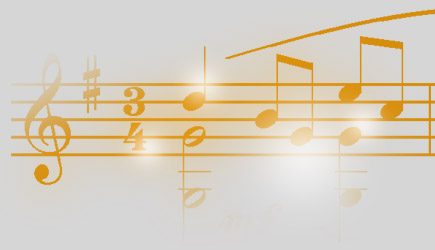
The Center for Ethics is interested in ethics and the arts, so this project speaks to both streams.
MD: Speak to the lives of these people.
HF:The images, the photographs are so moving because
they are so ordinary, they show daily life…and then these
people are thrust into a horrific experience; and the music is about an extraordinary response to a horrific experience. In these extreme circumstances, sometimes “ordinary people” have an extraordinary response.
MD: Please tell me about Robert Heilbut.
HF: Listening to the music at night, I was very much aware of what a good composer he was, his ability to develop a theme…and suddenly I realized, they murdered him, and not only did they take his life from him, they took it from me! For me, I became connected to Robert Heilbut, who often wrote this joyous, even whimsical music. The idea of writing whimsical music in a concentration camp gets to me. So for me, recently, after we chose the music, the concert became about Robert Heilbut. Through working so closely with his music and what I know of his life, I suddenly have a personal relationship with him, and through him to the other composers and prisoners.
MD: How did Francesco Lotoro find this music?
HF: Lotoro’s interest in the music began in 1991. He began his collection on a visit to Prague. He also had been to Munich to find a survivor who was a composer. The
composer told Lotoro that he could have copies of all of his work, but Francesco didn’t have enough money to copy it, so he went home, saved money and returned, only to discover that the composer had died with no surviving relatives and all of his four hundred works of jazz were gone. This mightily impressed upon him that time would run out.
Francesco found out that many years back, his family had been Jewish, but had converted to Christianity. After working with the music and the stories of the composers, he converted to Judaism, returning to his family’s roots. He was also approached by a German man whose father, a composer and a German soldier in World War II had been captured and interned in Great Britain. He asked Lotoro to include his father’s music. Francesco had to really think about this, and he decided that his first loyalty was to his fellow musicians, so despite his inner resistance, he included the work. He said, “I’m a musician…music is a universal language.”

And that is the entire point of what we are working on here – that there is a language that transcends the wounded part of our souls and connects us universally. Having access to that stream and its language is a way through the intractable problems that have been caused by hatred, violence and trauma. There is no “solution.” There is only a doorway through the common courtyard where compassion and acceptance create a space of air and light enough for us to breathe and see each other. If we can just stand in that courtyard peaceably together, we might be able to walk back into our lives differently.
DF: I find several exciting things about this project: first,
bringing this music to life, and second, the idea of live
performances of this music. We have a difficult task of
bringing forty musicians together under Honora’s direction
and then to do justice to the music. All of the performers
are professional. I am excited about being a partner with
Honora in this effort and also with the musicians.
I am an “amateur.”
HF: Dahlan is only “amateur” in the truest sense of the
meaning of the word: “from love.” The flow of love is so
activated by music…we find a way in through music.
DF: Honora and I sort of “re–wrap” things in a different
way. Honora’s idea is to make this a theatrical experience,
and I get excited by that idea. I see the growth potential of live performance pieces brought out into the open, plus the interdisciplinary aspects (with other arts –including poetry and the visual arts) I find exhausting and exciting!






